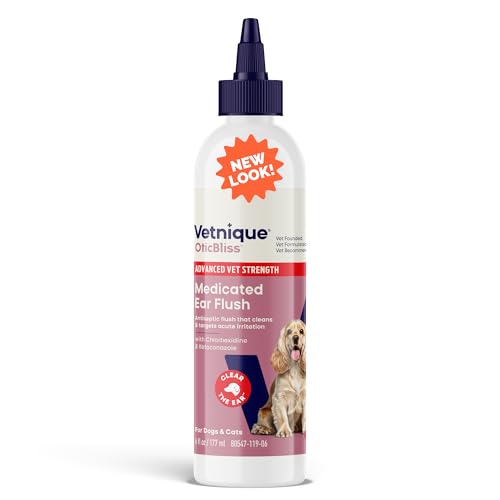Home Remedies For Ear Infections includes garlic oil, salt, dilute apple cider vinegar, olive oil, probiotics, tea tree oil, hydrogen peroxide, peppermint oil and leaves, mullein oil, vitamin D, citrus fruits, and Vitamin C.
There’s no doubting it- ear infections can make the toughest adults into whining babies, and children into frustrated monsters. Many people develop ear infections at some point in their lives, causing discomfort and loss of work or school days. Ear infections can affect one or more of the areas of the ear, namely the inner, middle and outer ear regions.
Of these types, middle ear infections are the most common, with the good news being that many times you do not need antibiotics or a visit to the doctor to cure it, but can do so with natural remedies that can be found around your home.
Let’s check out some of the best natural home remedies for ear infections that we’ve ever come across.
11 Home Remedies For Ear Infections

1. Garlic
Garlic keeps on becoming an even more versatile food, being able to treat ear infections thanks to its anti-microbial and analgesic (pain relieving) properties. To make the oil, two cloves can be heated in a base of coconut oil or mustard oil and then strained. The resulting mixture will contain garlic oil which is suitable for use inside the ear.
Be sure to let it cool a bit before dropping this oil into the ear.
2. Salt
Salt can be useful for helping to treat ear infections but not in the manner you might expect. While it does not actively treat the underlying causes, what it can do is to help prevent the growth of bacteria in the ear before it becomes serious.
To use, a bit of salt first needs to be heated, and then wrapped in a clean cloth and tied at the end, then placing at the ear when it has cooled a bit. It is important to still use it while it is warm, as it helps to pull moisture from the ear. Moisture is a haven for bacteria, so keeping the ear dry can assist the immune system in getting rid of an infection.
3. Dilute Apple Cider Vinegar
Apple cider vinegar is one of the most versatile home remedies, finding utility for many conditions. Apple cider vinegar is especially suited to treating fungal ear infections, though it also works for infections of a bacterial nature. To make, dilute vinegar in water at a 1:1 ration, then soak a cotton ball.
Plug the affected ear and lie down, allowing any discharge to get absorbed. Use twice daily, and follow up by using dry heat to remove (such as a blow-dryer) any remaining moisture. Used over the course of a few days, it can cure many mild ear infections.



4. Olive Oil
Sometimes, excessive earwax can contribute to the development of an ear infection, making it necessary to flush out the blockage. Olive oil is one of the most commonly used remedies to flush out excess wax is olive oil, being extremely safe at the same time.
To start, you must warm the olive oil and then pour a few drops into the affected ear. Leave a few minutes, then lean and drain the ear. Use of cotton swabs can also help remove blockages, but be careful not to push the blockage further into the ear canal.
5. Probiotics
Probiotics are good bacteria that are necessary parts of good health, helping to keep bacterial infections at bay by maintaining homeostasis. This is why after using anti-biotics which kill these good bacteria, you are likely to develop a secondary infection.
Probiotics can help to prevent ear infections that are bacterial or fungal in nature, and can even help to reduce the likelihood of ear infections as a result of allergies. Consume yogurt, more pickles and kimchi to help speed up the resolution of an infection or prevent them completely.
6. Tea Tree Oil
Tea tree oil is a known antiseptic essential oil, though it should not be instilled into the ear canal. Rather, it is massaged around the ear and on the outer ear regions, where it still manages to support resolution of the infection. Tea tree oil is preferred to preparations that are necessary to be used in the ear canal as they are contra-indicated if a perforated ear-drum is present.
7. Hydrogen Peroxide
Hydrogen peroxide is an excellent antiseptic that while used topically on cuts and scrapes, is also valuable when used to treat ear infections. In addition, it can also be used to help remove excess wax, making it one of the very few natural remedies that can remove wax and treat infections directly.
To use, dilute 3% hydrogen peroxide in an equal amount of water, and soak on a cotton ball. Place the cotton ball as a plug in your ear, and squeeze to let a few drops enter your ear. It is likely to sting a little bit as it clears wax in the ears, but it will subside quickly. After about 10 minutes, lean the ear downwards to drain any liquid and residue that need removing. Use a couple times daily for best results.
8. Peppermint Oil and Leaves
Peppermint possesses a unique mix of antiseptic, anti-bacterial and pain relieving properties, which can help treat ear infections and associated symptoms. Application of 2 to 3 drops of the liquid obtained from crushed peppermint leaves (not the oil) inside the ear, along with the application of the oil around the ear is excellent for clearing up an infection faster. Be careful to not be mistaken and use the oil inside the ear, as it can burn significantly.
9. Mullein Oil
Mullein is a flower with a smooth, suede-like consistency, which is made in an oil and incorporated into herbal drops and used to treat ear infections. In addition, to help in treating the actual infection, it also possesses milk anesthetic properties that numb pain and makes it less unpleasant. Mullein oil is also used commonly in pets for this same purpose.
10. Vitamin D
Some persons struggle with chronic cases of ear infections, which as they resolve may pop up again in a few weeks to months. This can become very frustrating, as remedies only appear to be short-acting. However, studies have found that Vitamin D can help to reduce the frequency of chronic ear infections, and their associated symptoms. It appears that elevating blood levels of this important vitamin is the reason for the reduced frequency, possibly due to its ability to enhance the function of the immune system. You can either go out and spend more time in the sun or supplement with more Vitamin D.
11. Citrus Fruits And Vitamin C
Well known to boost immunity and decrease your risk of communicable illness, citrus and Vitamin C containing foods also have the ability to reduce inflammation that can fester around an infection. This is no different in the ear, as it is likely this infection that causes pain and discomfort.
Conclusion
In many cases, a wait and see approach is your best option for dealing with many illnesses, with an ear infection being no different. A good rule of thumb is to wait 48 hours after starting treatment with any of the remedies mentioned above. If improvement starts, then it was mild to begin with and you will have saved yourself lots on doctor’s bills and medication. However, do not withhold medical intervention is you notice pain getting worse, or oozing start to manifest itself while using the natural remedies.



Join the 7‑Day “Better Gut” Plan
Pop in your email and we’ll send Lesson 1 + the printable list.







